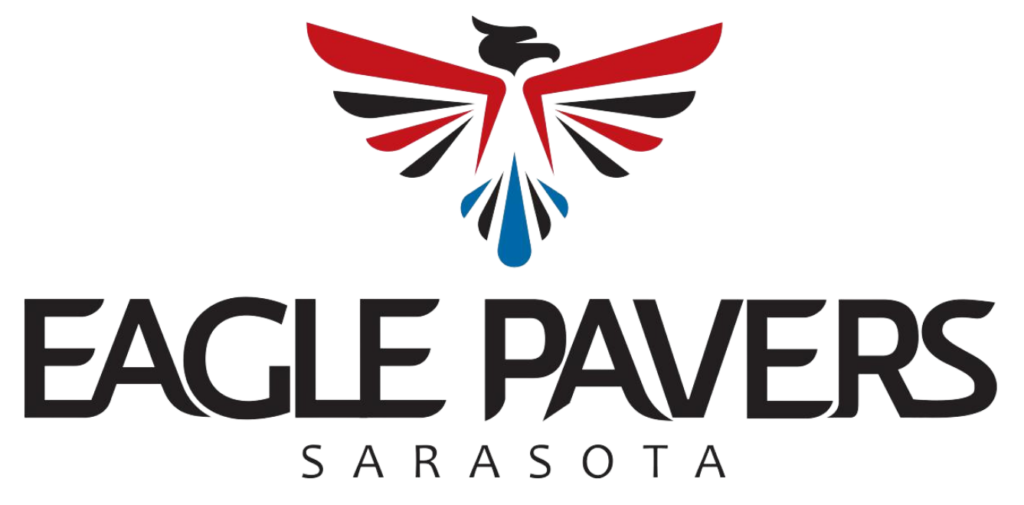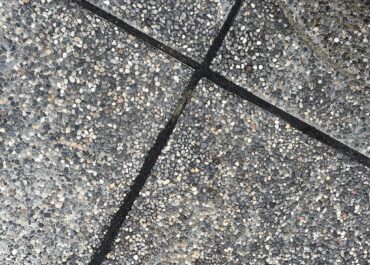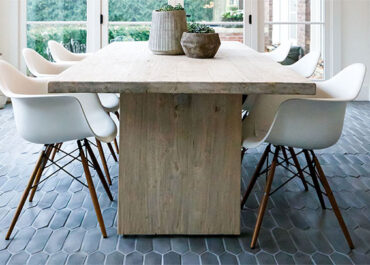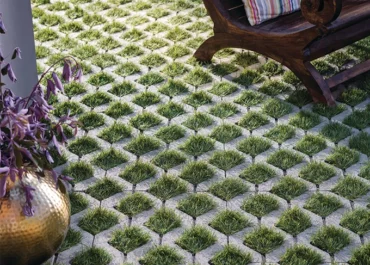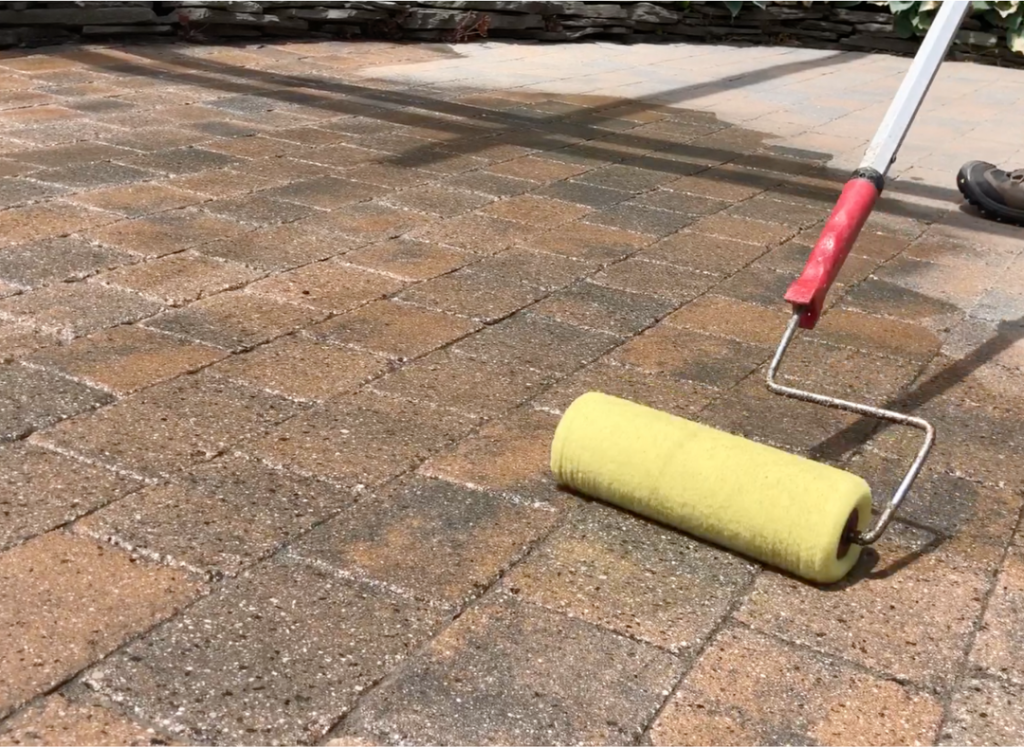
Pavers are a staple in the hardscape industry, and for good reason. Few elements are as efficient and visual appealing as pavers. Brick and concrete are the most popular types of pavers, and today, we want to talk about sealing. More specifically, what is the best brick paver sealer.
In case you didn’t know, the majority of pavers need to be sealed. The exception to this rule are porcelain pavers. They are already non-porous and, for that reason, considered one of the best options in the market. If you want more information, you can refer to this article, but today our focus is brick and concrete.
Brick and concrete are porous materials, that means substances are free to seep into their structure. That can cause stains and, in some cases, even real damage to the structure of the pavers. Sealing is no joke, it’s an important part of any paver installation, and it should be treated as such.
Pavers are considered an investment when it comes to home renovations. They can add a tremendous amount of value to a property for a relatively cheap price. The determinant factor is long term value, and that is only achieved with proper maintenance techniques. Sealing is a pivotal part of these maintenance techniques, and that’s why we choose to talk about it.
So let’s start by talking about sealer options, and what is the best brick and concrete paver sealer. To finish things off, let’s talk about sealing from a DIY perspective. Is it safe to apply sealers yourself? How can you do it? So let’s get right to it to answer these and many more questions.
What is the Best Brick Paver Sealer? What About Concrete Sealers?
The answer to that question is more complicated than it seems. It is hard to say objectively what sealer is the best one, because no paver installation is exactly like the other.
Weather conditions, choice of pavers, terrain, all of those things vary greatly from place to place. With those variations come different situations and right choice of materials, including sealers.
So, in the end, the best sealer is the one that better fits your project.
Of course, that choice is not trivial. Knowing what sealer best fits your project is something that only a trained eye can determine. That’s why hiring qualified hardscape professionals is always the best course of action when it comes to any paver installation.
Still, we are going to quickly explain the difference between each type of sealer and present you with some options of what are considered the best sealers in the market today.
Options of Sealers
Sealers are generally divided in two categories: film forming and non-film forming.
Film forming sealers are the ones who protect your pavers by actually creating a coat on top of them. They can come in several finishers and last less than their non-film forming counterpart.
And speaking of them, non-film forming sealers are the ones who penetrate the pavers and act from within. They protect the pavers by filling up those pores that we previously mentioned. Without space to get inside, the pavers are protected from absorbing liquids.
Now, which one better fits your project? Only you with the help of a qualified professional can decide.
Armor AR350
One option of sealer that often appears in conversations about “what is the best sealer” is the Armor AR350
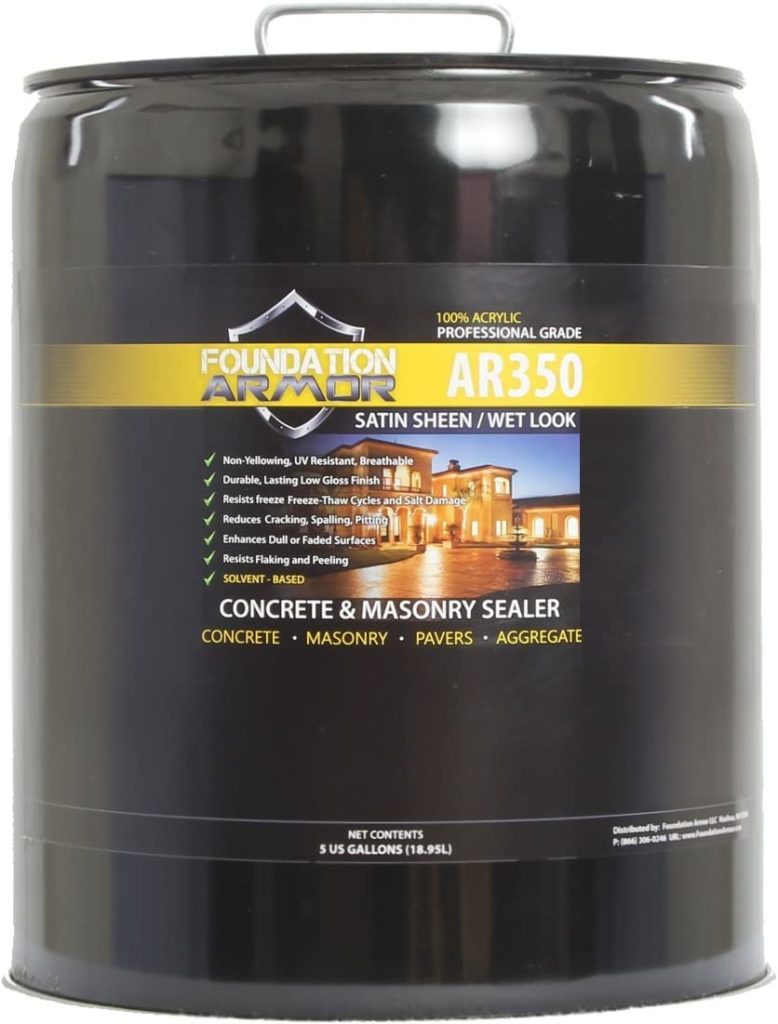
If you look at the caption, you see there’s a lot of information about the product. So let’s talk about each one.
Solvent Based: Sealers can be water-based or solvent-based. Solvent-based sealers are “thicker”. They require a solvent material, usually thinner, in the mix. They present strong odder and can be harder to clean up if spilled. Solvent based sealers require expertise to use, as the mixtures and disposals are complex and have specific regulations.
Acrylic: A sealer being acrylic means that it creates a film on top of the pavers, either with a wet or high-gloss finish. There are some matte options of finish, and these are considered more breathable for the pavers than the others, although not as breathable as the water based sealers.
Wet Look: That relates to the finish of the sealer. Finishers can be matte (the one that least alter the original look of the pavers), gloss (altering a little the texture of the original paver) and wet look. Wet look finishers are the ones that alter the most the original look of the pavers, giving them that “recently wet” look.
Rain Guard PRO-CR-0356
Now, if we are to talk exclusively about concrete and brick pavers, there’s another product that is often cited as the best one.
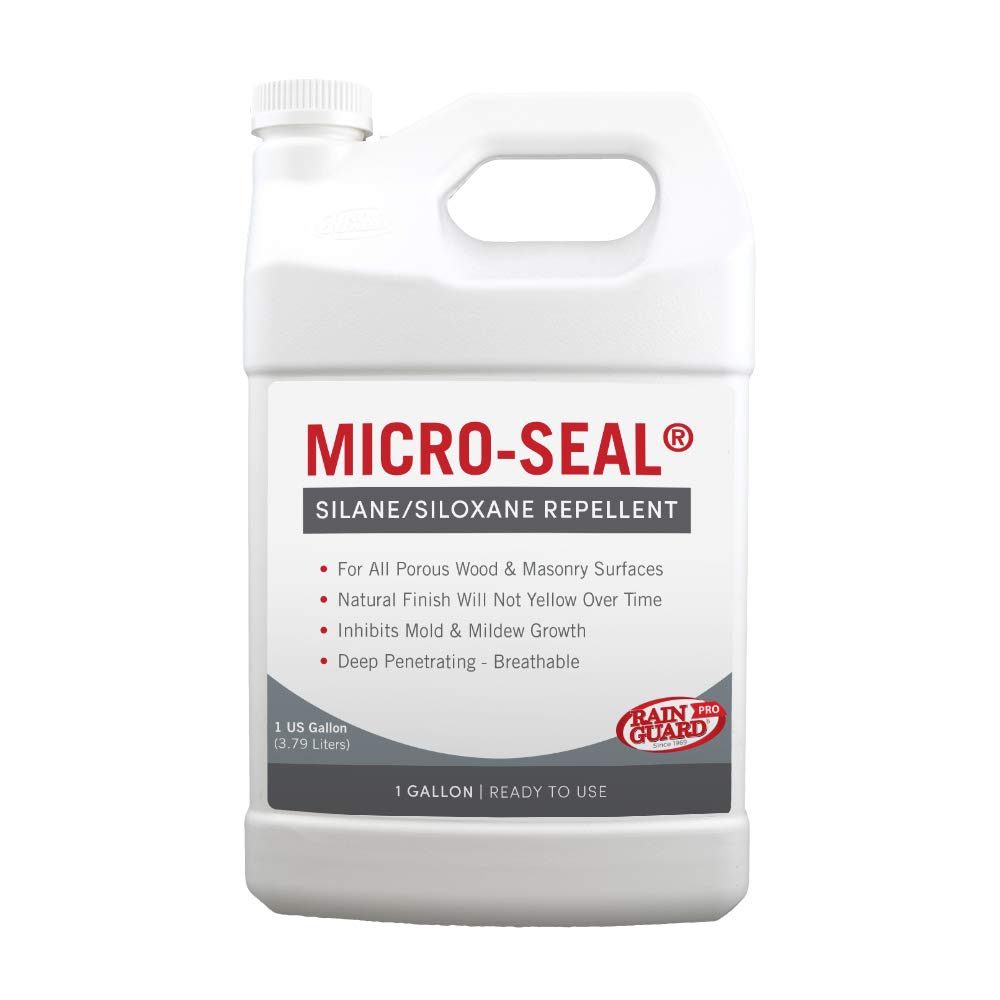
Penetrating (Silane/Siloxane): Remember how we mentioned that non-film forming sealers penetrate the interior of the pavers? Well, that characteristic is also what gives them their other name: penetrating sealers. Silane and Siloxane are simply the chemicals used in its composition.
Water Repellent: They don’t exactly repeal water, in fact. They simply make it impossible for water to be absorbed by the pavers.
Water Based: Opposite to the solvent based, these sealers are easier to apply and require less preparation, with easier mixes and application. They also help prevent mold, mildew, and efflorescence, very common problems for anyone who ever owned pavers.
Brick and Concrete Paver Sealer: Sealing Your Own Pavers
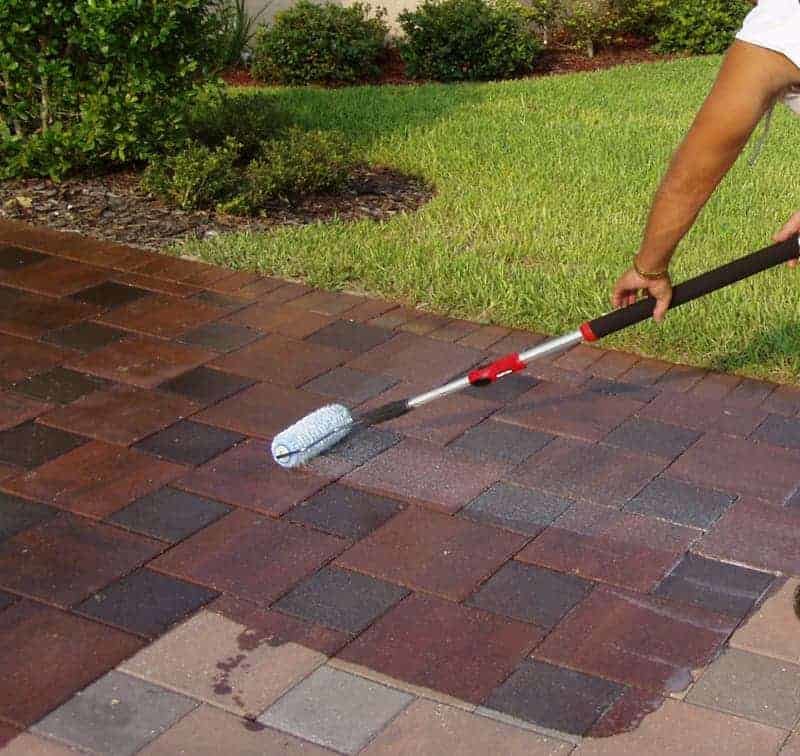
Sealing pavers as a DIY project can be complicated and risky.
Not only there are a ton of different options of sealers in the market, knowing how to properly apply sealers can sometimes be too much for inexperienced people to handle.
Water based sealers are simply enough, most come with a pump and spray method that is easy to follow. Solvent based sealers, however, can be much more complicated and dangerous to work with.
Either way, between choosing a sealer, mixing it and apply it, there are a lot of things that can go wrong. That’s why we reiterate that working with qualified hardscape contractors is your best course of action.
Here at Eagle Pavers, over our 14 years of activity, we have helped countless homeowners with their hardscape projects, sealing included, and we know the importance of experience when it comes to pavers installations.
So, we highly recommend you look for a professional in your area to help you with your project. And if you happen to be around our area of activity, the Sarasota and Manatee counties, in FL, why not give us a call to help you?
You can contact us anytime at +1 941-210-4192 or email us at sales@eaglepavers.us. We would be happy to hear from you and help you with any paver need you might have.
